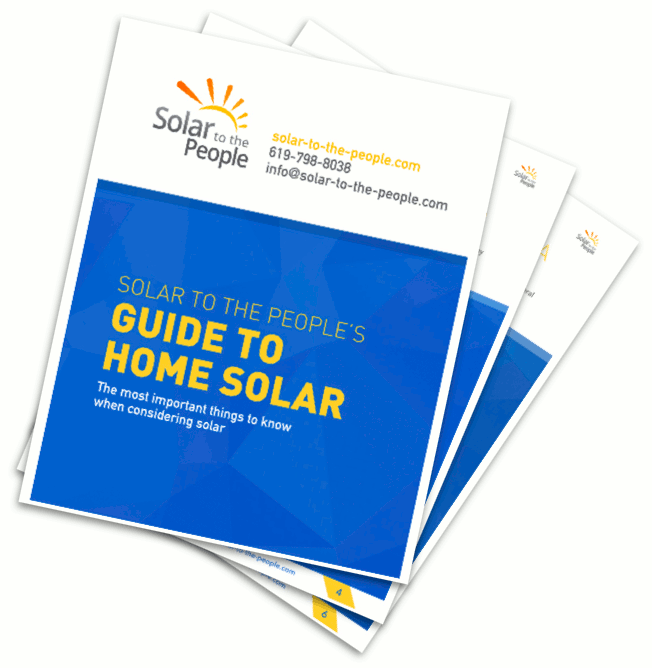Solar Energy Pros and Cons
Discover how much you can save today with our solar calculator
What are the main pros and cons of solar energy?
Solar energy is renewable, cost-effective and easy to maintain. However, not everyone receives all the benefits of solar. As interest in solar energy continues to grow, it’s important for buyers to understand the pros and cons of solar energy.
Below, we’ve pulled the biggest factors homeowners should consider when thinking about going solar.
Key Points: The Pros and Cons of Solar
Pros
- Save money long-term
- Clean energy
- Energy independence
- Easy installation and maintenance
- Qualify for tax credits
Cons
- Upfront cost
- Shade can reduce output
Solar Pro: Save Money
Everyone likes to save money. In addition to cutting bills, imagine saving money while also becoming a leader in the move to clean energy. You can quickly recover installation costs by greatly lowering or even eliminating your electric bill.
How much you save will depend on your location, utility costs, and the solar panel model. In addition, the financing you chose can have a big impact. Solar panels are rated for at least 20-30 years of use. Over the life of the system, many homeowners can see savings of $20,000 or more. Due to the expected rise in electricity rates, the savings could be even greater.
To learn more about how much you would save, see our page on solar savings.
Solar Pro: Affordability
The cost to install solar has dropped by over 70% since 2010. Solar energy is now as cheap as traditional electricity from the grid in at least 40 states and prices continue to fall. In 2010, the average cost of home solar was $7.34 per watt. Recently, some providers have started installing residential solar for just $2.50 per watt before tax credits. However, prices still vary widely depending on location and incentives. The future looks bright as more efficient panels enter the market, meaning more energy is generated with fewer panels or less sunlight. Net metering allows homeowners in select regions to receive bill credits for the solar energy they don’t use. As a result, the financial benefits are more immediate.
Financing options make solar affordable for most homeowners.
The savings from tax credits and rebates are a significant consideration when thinking about going solar.
Solar Pro: Availability
Solar energy is available across the nation. Even cloudy states like Washington or Minnesota see enough sun for solar to make sense. The amount of sunlight that shines in your local area can be found on this map. However, the number of sunny days is often less important than local incentives and power prices when considering the cost-effectiveness of going solar.
Solar Pro: Solar Energy is Green
For an average-sized home solar system, 15,000 pounds of carbon dioxide are kept out of the air each year. According to the EPA, electricity generation is the largest source of global greenhouse gas emissions. Reducing your carbon footprint not only combats climate change, it also cleans up the air we breathe. The World Health Organization estimates that roughly 4 million deaths result from the effects of air pollution each year.
You can join the movement to reverse the trend by switching to clean energy.
Solar Pro: Solar Energy is Free
One of the biggest advantages of solar energy is that aside from the cost of the solar panels and installation, it’s free energy. There’s no middleman between you and the sun. Solar energy is virtually limitless, so you can enjoy savings for years to come. How long will the sun be around? About 5 billion years, long enough to be worry-free.
Solar Pro: Easy Installation and Maintenance
Solar installation has become an extremely quick and simple process. While installations used to take several days, a skilled installation team can put in a full roof-mounted or ground mount solar panel system in an afternoon.
Maintaining solar panels is simple – they usually need no work at all. Rain cleans the panels, and if you’re in an extremely dry climate, an occasional hosing down will keep your panels clean and producing electricity efficiently. If you live in a snowy region, the installer will mount panels at an angle that allows for snow to slide off without any effort.
What are the downsides to home solar?
Although the benefits of solar are compelling, there are also some downsides, and it’s good to know the disadvantages to properly assess if solar is right for you.
Solar Con: Upfront Cost
As with any major upgrade to a home, the cost of installing solar can be a burden on your budget. Most systems come with an upfront cost between $10,000-$25,000 after incentives. However, there are plenty of loan and lease options that allow you to go solar for zero down. If you decide to go down the route of financing or leasing, consider how that could impact resale value should you decide to put your home on the market?
Owning the system outright always adds value to a home, but a leased system can be viewed as a liability to some buyers.
Solar Con: The Sun Isn’t Always Shining
When the sun goes down, so does your solar generation. However, times are changing. Solar plus battery storage is increasingly popular. Homeowners have discovered that they can have clean solar energy at night with the addition of a battery. Shading from trees or buildings can reduce the efficiency of a system. It’s important to consider the amount of sunlight that your home receives as you think about making the switch to solar.
Consider how the pros and cons of solar will affect your unique situation before you buy or lease panels.
The greatest advantages include savings on your power bill, reliable energy independence, record low prices and cleaning up the air. On the other hand, initial costs can be a challenge for some. In addition, potential shading can reduce the performance of solar panels.
By understanding the pros and cons of solar energy, you will be confident when evaluating if solar panels are right for your home.


